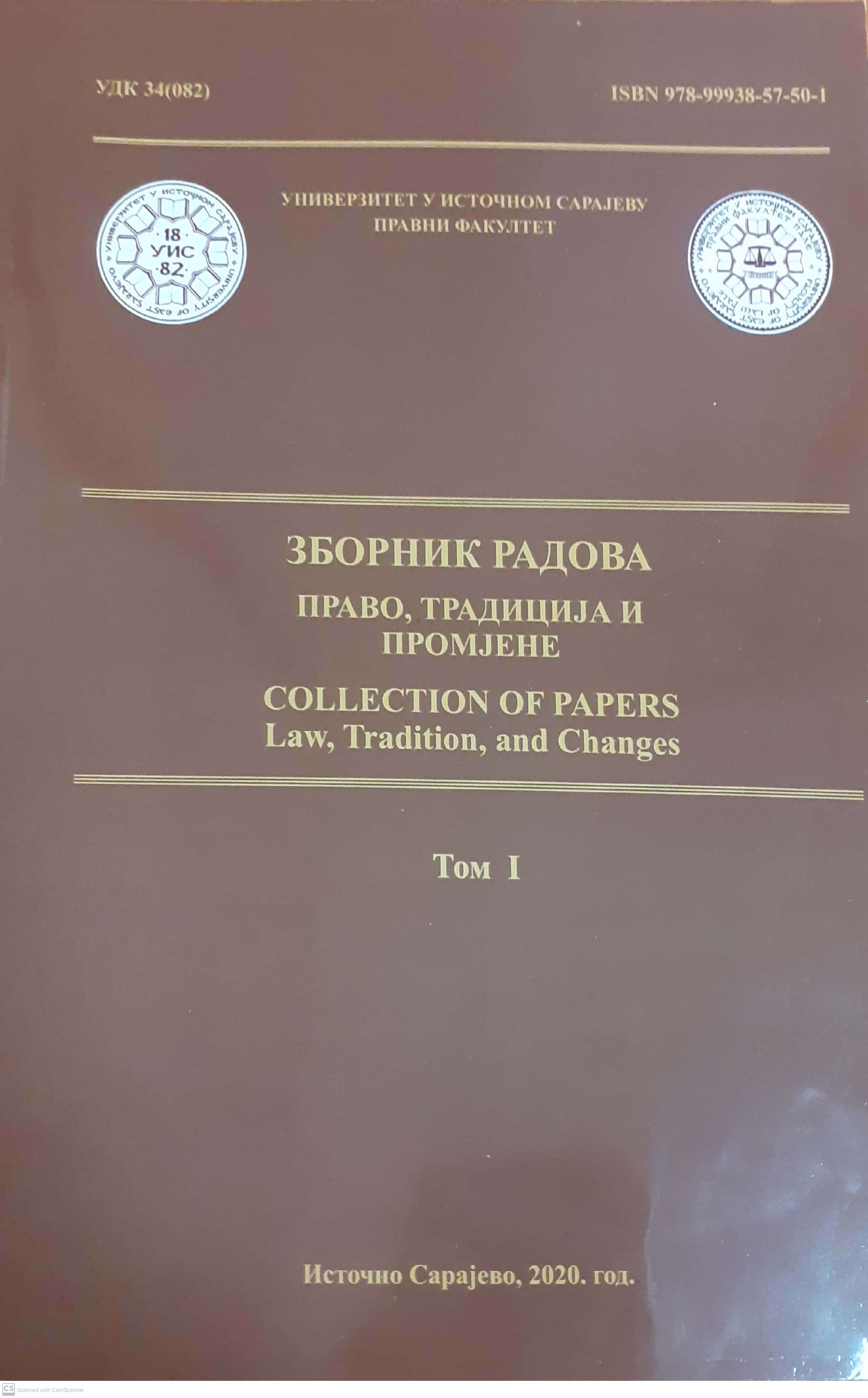Pravo na sklapanje vjerskog braka u Bosni i Hercegovini
The Right to Conclude Religious Marriage in Bosnia and Herzegovina
Author(s): Dženeta Omerdić, Boris Krešić
Subject(s): Civil Law, Family and social welfare
Published by: Правни факултет Универзитета у Источном Сарајеву
Keywords: Freedom of thought, conscience and religion;Prohibition of discrimination;Religious marriage;Bosnia and Herzegovina; European Convention on Human Rights;The Family Law of Federation of B&H;
Summary/Abstract: Everyone has the right to freedom of thought, conscience and religion. This right includes freedom to manifest one's religion or belief, in worship, teaching, practice and observance either alone or in community with others and in public or private. The conclusion of religious marriage is a ritual. It represents practice and, as such, is guaranteed by the provisions of the European Convention. In Bosnia and Herzegovina marriage is a community of life between a woman and a man, governed by the law. It is based on the principle of legality. From a formal-legal point of view, if the prescribed conditions are fulfilled, civil marriage produces legal consequences. Religious marriage, however, does not. Persons who have concluded only religious marriage can exercise rights if the laws of the state recognize the rights of informal communities of life. Thus, in FB&H, people who have concluded a religious marriage can exercise the rights of extramarital partners provided that they fulfill the conditions needed to enter into an extramarital union. However, having in mind that the rights and freedoms set forth in the European Convention for the Protection of Human Rights and Fundamental Freedoms and its Protocols shall apply directly and have priority over all other law in Bosnia and Herzegovina, the competent state authorities of the FB&H should amend the provisions that do not allow conclusion of religious marriage before the civil marriage. The amendments should allow conclusion of religious marriage as a religious ceremony, with the emphasis that the religious ritual does not imply rights (and obligations) in the way that civil marriage does. Individuals interested in the conclusion of a religious marriage should be clearly and unambiguously aware of the fact that religious marriage does not in itself produce legal consequences. If they still opt for religious marriage, they should not be restricted. After all, citizens should be aware of the consequences of using and enjoying their rights and freedoms. Furthermore, bearing in mind international, regional and national normative solutions, as well as the court's practice, punishing religious officers is not necessary in a democratic society. It is very difficult to prove that punishment is in the interests of public safety, for protection of public order, health or morals, or for the protection of the rights and freedoms of others. It is necessary to ensure that citizens enjoy Convention’s rights and freedoms. Namely, for many people, marriage is not valid if it is not received appropriately by a religious institution. The purpose and function of the secular law governing the issue of marriage should not be defeated by not leaving the possibility of performing a religious ceremony. The fact that religious marriage will not produce legal consequences goes to the detriment of the spouses. Aware of the risks, they will be able to exercise another right — the right to freedom of thought, conscience and religion. Having in mind the fact that everyone has the right to freedom of thought, conscience and religion, responsibility for not enjoying some rights should be removed from the state. State should allow individual to manifest his or her religion in practice. Aware of the risks, individuals should decide and make their choices: legal consequences or religious ritual. In that sense it is necessary to transfer responsibility from the state to the citizen. Only then, with the responsible individuals, aware of the consequences of their choices, can we secure a democratic society and the rule of law.
- Page Range: 235-251
- Page Count: 17
- Publication Year: 2019
- Language: Serbian
- Content File-PDF

